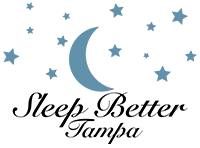While the signs of sleep apnea are sometimes subtle, this medical condition can drastically affect your sleep quality. This sleep disorder comes in both obstructive, when your throat muscles relax, and central when your brain isn’t signaling you to breathe properly. The first step to diagnosis is recognizing the signs.
1. You Snore Loudly
While snoring doesn’t necessarily mean you have sleep apnea, it is a common sign. With approximately 22 million Americans having this disorder, you should take your snoring seriously.
In addition to just waking up your partner or yourself, you may discover that when you stop snoring, you’re not breathing temporarily. This combination is a major red flag.
2. Signs of Sleep Apnea Include Tiredness
Since you may be snoring and not breathing correctly at times, it’s quite common to deal with both insomnia and hypersomnia. With insomnia, you have trouble staying asleep. With hypersomnia, you stay unusually tired throughout the day. Either way, you’re not sleeping well.
If you find yourself frequently exhausted even after being in bed for hours, this could be a sleep apnea sign.
3. You Have Trouble Breathing
Bad dreams or a sudden loud sound could startle you awake and leave you gasping. And those instances can be normal. But waking up regularly gasping for air or with shortness of breath isn’t normal. It’s one of the more common and serious signs of sleep apnea. It means you’ve stopped breathing in your sleep and suddenly wake up gasping for air.
4. Your Mouth and Throat Are Dry
It’s not unusual for those with sleep apnea to breathe out of their mouths, especially when snoring. It can leave you with a dry mouth and throat the next morning. It could be a sign if you frequently have a dry mouth and your throat feels dry and scratchy. Mix this with feeling unusually tired day after day without any other signs of illness, and you could have sleep apnea.
5. You Deal With Irritability and Focus Issues
The lack of sleep affects all areas of your life. For example, you might notice you have mood swings or are just irritable all the time. Even worse, you have a hard time focusing or concentrating. This, of course, can drastically affect work, school, and your personal life. All of this comes from you being tired after constantly waking up all night due to sleep apnea.
While a CPAP is a common solution to this sleep disorder, you may not need one. However, if you have any signs of sleep apnea, see how Sleep Better Tampa can help treat you.
